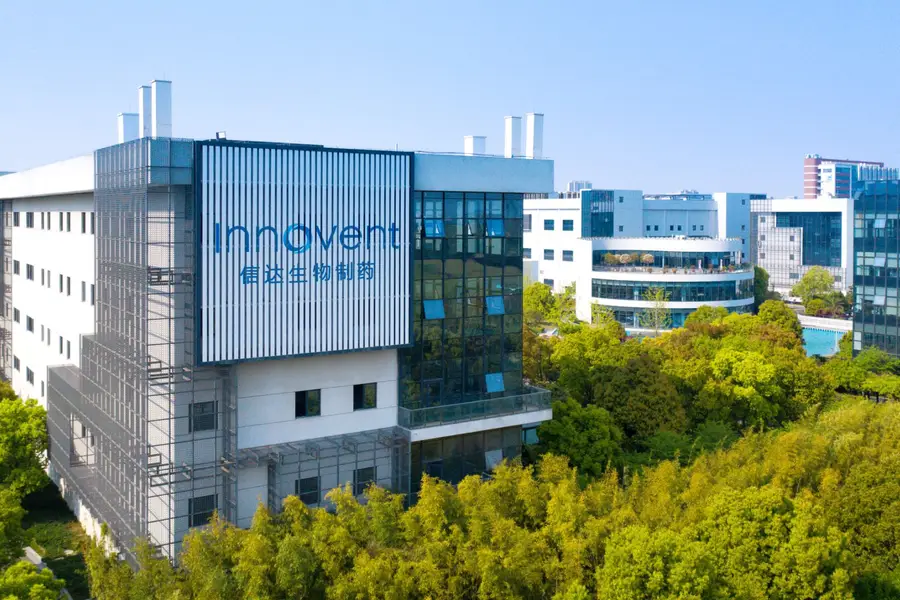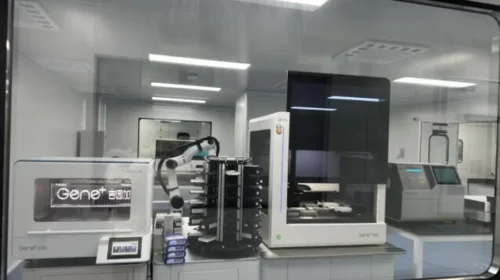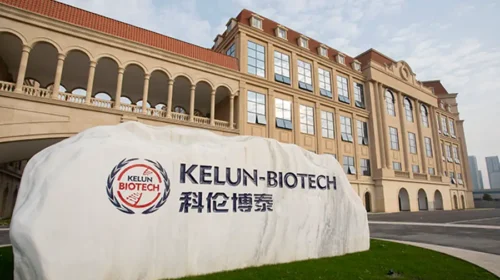So big but so what? Innovent’s license deal fails to excite investors

The Chinese biotech is selling some cancer drug rights to a Japanese pharma giant for up to $11.4 billion, pocketing a big downpayment, so why did its stock price fall?
Key Takeaways:
- Innovent and its partner Takeda will share global development costs for the main oncology drug covered by the deal
- Innovent will also partner in efforts to commercialize the drug in the United States, becoming only the second Chinese biotech to participate directly in U.S. sales of new drugs
By Molly Wen
A wave of potentially lucrative licensing deals has swept across China’s biopharma sector in recent months, but investors have not been impressed.
From RemeGen in July to InnoCare Pharma and Hansoh Pharmaceutical in October, several Chinese drug developers have made high-value announcements about overseas partnerships, only to be met with muted market reactions.
Leading Chinese biotech Innovent Biologics Inc. (1801.HK) was no exception to this pattern when it unveiled a deal last week with an eye-popping value of up to $11.4 billion. The partnership with Japanese multinational Takeda International (4502.JP), announced on October 22, boosted Innovent’s stock in early trade but the shares quickly reversed course to close 1.96% lower.
Analysts gave the agreement a warmer reception, calling it a landmark in global drug development for the Chinese biopharma industry. The Takeda tie-up covers three of Innovent’s experimental assets, with the companies joining forces to bring the core drug in the deal to the key U.S. market.
The potential value of the agreement marks a record for such licensing transactions in China. Of the headline figure, a $1.2 billion upfront payment includes a $100 million equity investment by Takeda, calculated at a 20% premium to Innovent’s average closing price in the 30 days prior to signing.
The upfront portion is second only to the $1.25 billion downpayment made by Pfizer (PFE.US) in a deal with China’s 3SBio Inc. (1530.HK) earlier this year.
Takeda is a prestigious partner, commanding $30.6 billion in revenue last year and benefiting from long and deep expertise in the U.S. market. Based on the upfront sum, maximum value and partner profile, the deal ranks as one of the most substantial and credible cross-border collaborations in China’s biotech history.
Yet the stock market was uninspired. Innovent’s shares fell for two straight sessions after the news was announced, losing about 2% in total. This contradiction, between the deal substance and Innovent’s share performance, probably stems from an initial misunderstanding of the structure as well as broader pressure across the biotech sector.
Let’s examine the three investigational drugs covered by the deal. The centerpiece drug, IBI363, has the potential to break new ground in cancer immunotherapy. Using a bispecific antibody fusion protein, it would mark a step up from the current generation of PD-1/L1 inhibitors, which strengthen the immune response to cancer cells. Innovent’s IBI363 aims to block PD-1 signaling while additionally activating cancer-fighting cells using the IL-2 pathway.
The Innovent drug is undergoing multiple clinical trials, including a global Phase Three study as a treatment for small-cell lung cancer, having demonstrated efficacy and safety in the previous round of trials. Chinese regulators have designated the drug as a breakthrough therapy, and accelerated approval from the U.S. Food and Drug Administration is expected to be sought in 2026.
The terms for the drug IBI363 are noteworthy. Instead of granting full overseas rights to its partner, Innovent negotiated a so-called “Co-Co” split in which the two companies share the work of developing and commercializing the drug.
International development costs outside Greater China will be paid 60% by Takeda and 40% by Innovent. The companies will likewise co-launch the drug in the United States, with profits or losses divided up by the same ratio. Otherwise, Takeda gains exclusive commercialization rights outside Greater China and the United States.
The two other experimental drugs in the licensing package target gastric cancer and solid tumors.
Takeda gained global rights outside of China to Innovent’s antibody-drug conjugate IBI343, which targets the CLDN18.2 protein, one of the hottest areas in gastrointestinal oncology. The Japanese partner also secured an option for international rights to an early-stage cancer drug candidate, IBI3001, which showed promise in pre-clinical studies and is now in Phase One testing.
Sharing the cost burden
The drop in the share price probably reflects concerns over the financial burden of the Co-Co model. Analysts noted that Innovent must cover 40% of overseas development expenses, implying a substantial and sustained drain on its cash. Compared with the more conventional method of selling rights for royalties, the approach could dilute short-term margins and appear to be less profitable.
However, this same structure could be seen as underscoring Innovent’s pursuit of long-term growth. Innovent Chairman Michael Yu stressed during a conference call that the deal’s dollar figure mattered less than the benefits it could bring in the future.
Rather than passively collecting royalties, the company aims to be actively involved in clinical design, decision-making and commercial rollout, as it aspires to become a fully global pharmaceutical enterprise.
Moreover, development costs have become more predictable as the main drug, IBI363, is already undergoing late-stage trials for key indications, with Takeda’s 60% contribution helping to ease cash-flow pressure on Innovent.
Another deal highlight is Innovent’s right to co-commercialize IBI363 in the United States, making it potentially the second Chinese biopharma firm after BeiGene (688235.SH; 6160.HK; ONC.US) to build a U.S.-based sales and marketing team to promote an innovative drug.
This marks a paradigm shift for Chinese drugmakers, as they go from simply licensing out their drugs to developing deep global partnerships drawing on their own strengths and expertise.
Innovent posted revenues of 5.95 billion yuan ($840 million) for the first half of 2025, up nearly 51% from the same period a year earlier, with a net profit of 834 million yuan and steadily improving cash flow. The company trades at a price-to-sales ratio of roughly 11 times versus about 7.5 times for BeiGene, with a premium already baked into its shares.
The $1.2 billion downpayment from Takeda will significantly strengthen Innovent’s finances, providing funds to develop its pipeline drugs for launching on the market.
To subscribe to Bamboo Works weekly free newsletter, click here





